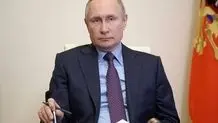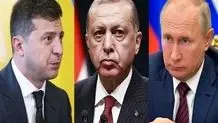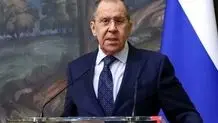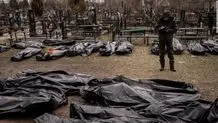EU plans to put Putin’s rumoured girlfriend on sanctions list
Alina Kabaeva likely to join Patriarch Kirill, who supports war in Ukraine, on draft document of travel bans and asset freezes.

THE GUARDIAN: Alina Kabaeva likely to join Patriarch Kirill, who supports war in Ukraine, on draft document of travel bans and asset freezes.
The European Union plans to impose sanctions on Alina Kabaeva, long rumoured to be Vladimir Putin’s girlfriend, and Patriarch Kirill, the head of the Russian Orthodox church.
Two sources said the EU has proposed sanctions on Kabaeva, a former Olympic gymnast whose appearance on a draft sanctions list was first reported by Bloomberg. Kirill, a long-serving Kremlin ally who has given his blessing to the war in Ukraine, appears on a draft document seen by the Guardian.
According to Bloomberg the document describes Kabaeva as “closely associated with President Vladimir Putin”. Kabayeva won gold in the 2004 Olympics for rhythmic gymnastics and was also a flag-bearer at the Winter Olympics in Sochi in 2014. She was an MP for six years representing Putin’s United Russia party and went on to run a major pro-Kremlin media group, despite an apparent lack of experience in media management.
EU officials are also targeting the immediate family of Putin’s press secretary, Dmitry Peskov, who was sanctioned in a previous round. Peskov’s wife, Tatiana Navka, would be added to the list through her marriage, but also because of her co-ownership of property in Crimea, which was annexed by Russia in 2014, according to the EU. Nikolay Peskov, 31, is said by the EU to use his father’s money, while Elizaveta Peskova, 24, is said to have acquired “lucrative positions and has been living a luxurious lifestyle thanks to her father’s connections”.
The day after the Russian invasion, Peskova posted “No to war” on her Instagram account, according to Russian media. The post was later removed.
Also expected to be added to the list is Marina Mordashova, the wife of Russia’s richest man, Alexei Mordashov, because she is said to benefit from her husband’s assets. He is a majority shareholder of Severstal, Russia’s biggest steel company, and during the pandemic rescued Tui, Europe’s largest tour operator.
The EU is also targeting several dozen military officers accused of the murder and torture of civilians in the town of Bucha, near Kyiv. Heading the list is Azatbek Omurbekov, the commander of the 64th separate motor rifle brigade of the 35th army. He is described on the EU sanctions list as “leading the actions of his military unit and nicknamed ‘butcher of Bucha’, due to his direct responsibility in killings, rapes and torture”.
Also on the draft list is the head of Russia’s national defence management centre, Mikhail Mizintsev, the military commander said to be responsible for the siege of Mariupol that has killed thousands of people.
A handful of Ukrainians are also on the list, notably officials who the EU says have worked with Russians in the occupied cities of Kherson and Melitopol.
Kirill is named on the draft EU sanctions list under his birth name, Vladimir Gundyayev and described as “one of the most prominent supporters of the Russian military aggression against Ukraine”.
The patriarch used a sermon to support Russia’s “special peacekeeping operation” days after the invasion, has claimed Russian speakers in eastern Ukraine needed to be “liberated” and called the war a “religious cleansing operation”.
After Putin won a fraudulent election in 2012, Kirill described his return to the presidency as a “miracle of God”.
He has faced questions about his wealth and in 2012 the Russian Orthodox Church was forced to apologise when it emerged a photograph of the patriarch had been doctored to remove a flashy gold watch. The Breguet watch, estimated to be worth $30,000 (£19,000 in 2012 prices), had been removed from Kirill’s wrist, but its reflection remained visible in the highly-polished table.
The patriarch’s support for the war has led to a clash with the pope, who urged Kirill earlier this week not to “be Putin’s altar boy”.
The EU intends to add 16 firms to the sanctions list, notably Russian companies that make aircraft, vehicles, parts and other technology used in war.
Three banks are to be banned from using the Swift international bank messaging system, effectively stopping them from doing business with the west.
The EU’s member states are also discussing a ban on Russian oil imports by the end of the year.
Hungary and Slovakia, two countries that are nearly 100% dependent on Russian crude oil, have been offered a one-year extension on the ban. Budapest has said it cannot support the sanctions in their current form, while Bratislava says it needs more time to overhaul its refineries.
Despite the disagreements on the oil embargo, diplomats remain confident that an agreement can be reached by Friday or over the weekend.
آخرین اخبار Politics را از طریق این لینک پیگیری کنید.




